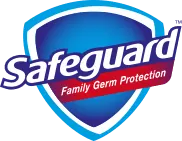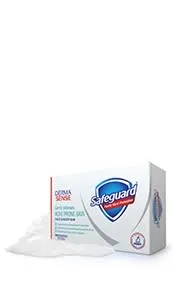- Home/
- Health Education/
- Skin Health & Protection/
Truths and Myths About Acne
Truths and Myths About Acne
SHARE
Most likely, after the age of 11, your child will struggle with acne. In fact, approximately 80% of preteens and teens have acne.1Instead of letting acne lead to stress, teach your child the truths and myths about acne to help him or her overcome any frustrations.
Truths About Acne
Acne is most commonly caused by an excess of oil in your glands.
- Skin is covered with tiny hair follicles (or pores), which contain oil glands known as sebaceous glands.
- During puberty, these glands often produce excessive oil referred to as sebum. When pores get plugged with sebum (and possibly outside dirt, oil, or germs), this leads to acne.
Genetics can play a role in how much acne affects your skin.
- Several studies have shown that children who struggle with acne are more likely to have parents who also experienced acne.
Blackheads and whiteheads are the most common forms of acne.
- Blackheads occur when the plugged hair follicle reaches the surface and opens up, creating a black bump that is due to changes in sebum as it is exposed to air.
- Whiteheads occur when the plugged hair follicle stays beneath the surface and creates a white bump.
- Both blackheads and whiteheads can remain in the skin for a long period of time.2
There are several other common types of acne a teenager might experience.
- Papules are inflamed lesions that usually appear as small, pink bumps on the skin and can be tender to the touch.
- Pustules (or pimples) are topped by white or yellow pus-filled lesions that may be red at the base.
- Nodules are large, painful, solid lesions that are lodged deep within the skin.
- Cysts are deep, painful, pus-filled lesions that can cause scarring.2
Myths About Acne
Stress causes acne.
- There is no proof that stress is a direct cause of acne. However, some studies have shown that the results of dealing with stress can worsen acne.
Greasy foods or chocolate cause acne.
Currently, there is no proof that greasy foods or chocolate cause acne or contribute to acne. However, some studies suggest foods that increase blood sugar (such as bread, bagels, and chips) may trigger acne.3
You cannot over-wash your face.
Gently cleaning your face can help prevent acne. However, over-scrubbing your face can actually have the opposite effect.
People don't get acne after their teenage years.
- For most people, acne tends to go away by the time they reach their 30s; however, some people in their 40s and 50s continue to have this skin condition.2
Unfortunately, there are no secret cures for acne. Science can explain why people get acne, but it can't yet eliminate acne altogether yet. If you'd like to learn about the ways to treat acne, Safeguard can help.
1http://www.cdc.gov/bam/body/body-microscope.html 2http://www.niams.nih.gov/Health_Info/Acne/ 3http://www.mayoclinic.org/diseases-conditions/acne/basics/causes/con20020580

